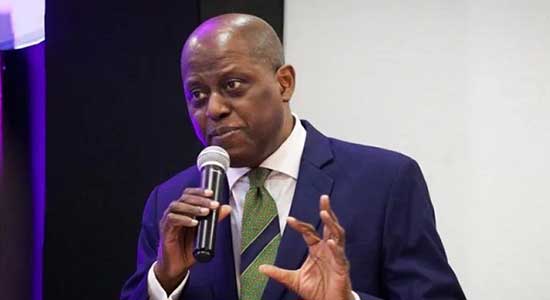Finance
Nigeria Central Bank Sees Progress in Naira Stabilization, Says Governor Cardoso

The Central Bank of Nigeria (CBN) has expressed satisfaction with the strides made in stabilizing the naira as excessive volatility appears to be subsiding.
Speaking in an interview with Bloomberg TV on Tuesday, CBN Governor Olayemi Cardoso said the measures taken by the bank to support the currency will revitalize investor confidence.
“I do believe that we have more or less seen the worst in terms of volatility,” Cardoso stated. “We are also very alive to observing the way and manner in which that market operates and ensuring that it gives the best value that can be accomplished using certain tools.”
Since taking office in September, Cardoso has overseen significant policy changes, including an increase in interest rates by 750 basis points to 26.25% and an overhaul of Nigeria’s exchange rate policies, effectively devaluing the naira.
These actions, alongside clearing a foreign-exchange backlog, have contributed to a more stable naira, even though it remains the world’s worst-performing currency this year, following the Lebanese pound.
“Reviving confidence in the naira is crucial for attracting investors to Nigeria,” Cardoso emphasized. “Our thoughts align with those of the governor,” added Olumide Sole, an analyst at Lagos-based Vetiva Capital Management Ltd. “Based on the purchasing power parity model, the naira is currently valued at 900 naira levels, which is far less than the current market price.”
The naira has traded in a narrow range between 1,473 and 1,490 per dollar this month, closing at 1,492.71 to the dollar on Tuesday.
“We’re relatively pleased with where we are,” Cardoso said, noting that while significant progress has been made, the central bank’s work is ongoing. “It’s continuous work in progress. And we will do everything possible to ensure that we continue to manage the macroeconomic fundamentals that affect that.”
The CBN’s efforts have also impacted Nigeria’s inflation rate, which has remained high due to the currency devaluation, food insecurity, and the removal of energy subsidies.
Last month, consumer prices rose by 34%, slightly up from 33.7% in April, indicating that inflation might be nearing its peak.
The governor declined to speculate on whether these developments signal an end to the tightening cycle that began in May 2022.
“Data will direct whether they see further hikes or not,” he said. “The MPC has been very clear in stating that they see inflation as a major impediment for the future of Nigeria, and they will do everything possible to ensure that they keep inflation in check.”
Cardoso also mentioned the importance of using orthodox monetary policy to achieve these goals. The steps taken by the CBN, coupled with fiscal reforms by President Bola Tinubu’s administration, have improved Nigeria’s liquidity.
The World Bank recently approved $2.25 billion in funding to support Nigeria’s economic reforms, boosting its foreign exchange reserves.
The CBN will continue to support measures to build the country’s reserves, including a potential eurobond issue.
“We should have a diversity of sources,” Cardoso said. “It shouldn’t just be the eurobond market, it shouldn’t just be foreign portfolio investors, it should be a hodgepodge of different things.”
Building these reserves is crucial for the CBN to meet demand in the foreign-exchange market and sustain the gains made in stabilizing the naira, Sole remarked.